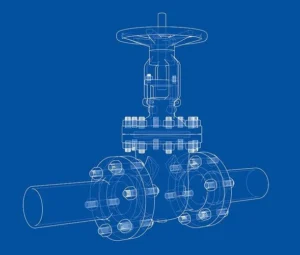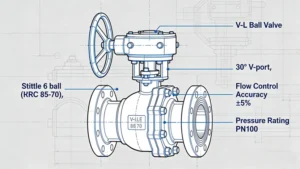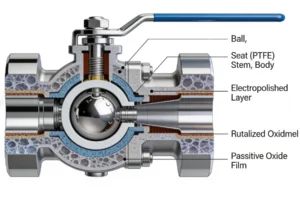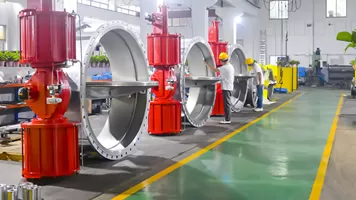A hose bibb, a critical component in plumbing systems, serves as the interface between a building’s water supply and external applications like gardening, vehicle washing, or industrial fluid management. While often associated with residential use, hose bibbs also play a vital role in commercial and industrial settings, requiring robust designs to meet demanding standards. As a leading industrial valve manufacturer, Tianyu Valves extends its expertise in precision engineering to offer reliable hose bib solutions that combine durability, compliance, and performance. This guide explores the mechanics, types, and replacement considerations for hose bibbs, with a focus on how Tianyu’s industrial-grade products address both residential and commercial needs.
Part 1: Hose Bibb Fundamentals: Definition, Terminology, and Core Functions
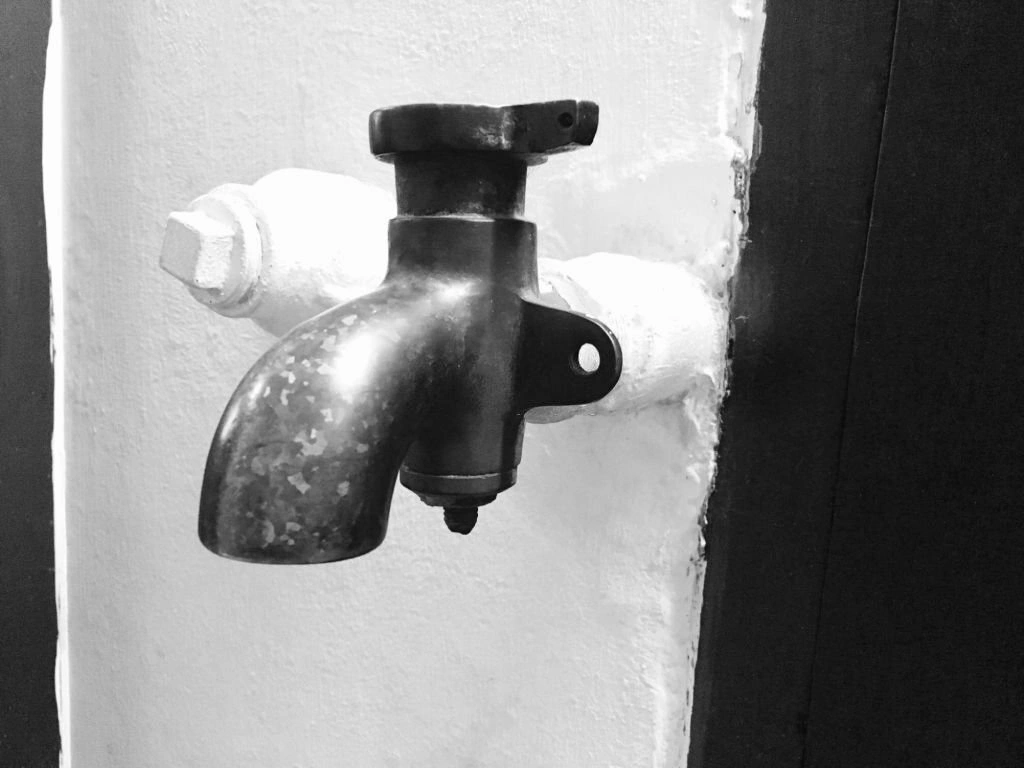
1.1 What is a Hose Bibb?
A hose bibb is a specialized valve installed on the exterior of a structure, designed to connect a garden hose or other fluid transfer equipment to the internal water supply. Unlike standard indoor faucets, hose bibbs are built to withstand outdoor conditions, featuring a downward-facing nozzle (bibcock) to prevent water accumulation and a quarter-turn ball valve mechanism for quick on/off control. Key functions include:
- Water Accessibility: Enabling outdoor tasks like watering plants, cleaning, or filling pools.
- Backflow Prevention: Many models include built-in vacuum breakers to protect potable water from contamination.
- Industrial Adaptability: In commercial settings, hose bibbs may be integrated into irrigation systems, cooling loops, or machinery supply lines.
1.2 Terminology Clarification: Bib vs. Bibb vs. Spigot
- Hose Bib vs. Hose Bibb: Both terms are interchangeable, though “bib” is more commonly used in the U.S., while “bibb” is a variant spelling.
- Spigot vs. Hose Bibb: These terms often refer to the same device, but “spigot” may denote a simpler, non-valve outlet, whereas a hose bibb explicitly includes a shutoff mechanism.
- Silcock: A type of hose bibb with a longer shank, ideal for cold climates as it extends deeper into the building to prevent freezing.
1.3 Technical Structure and Valve Type
Hose bibbs typically incorporate a ball valve design, featuring a hollow spherical disc that rotates 90 degrees to open or close flow. This design offers:
- Quick Operation: Single-quarter turn for full flow or shutoff.
- Minimal Wear: Reduced friction compared to gate valves, extending lifespan.
- Pressure Control: Suitable for low-to-medium pressure applications (up to 150 PSI in residential models).
Tianyu’s Industrial Insight: While residential hose bibbs use brass or plastic, industrial variants from Tianyu Valves leverage materials like stainless steel (316L) and forged carbon steel, rated for pressures up to 2,500 PSI and temperatures from -20°F to 400°F.
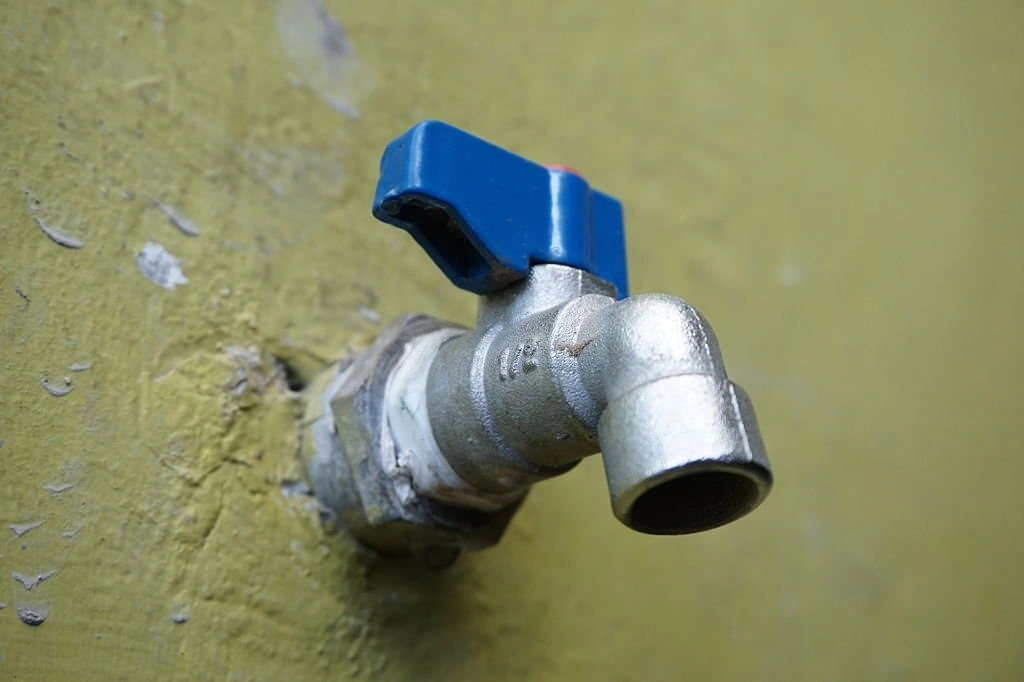
Part 2: Types of Hose Bibbs: Matching Design to Environment
2.1 Standard Hose Bibbs
- Construction: Made from brass or galvanized steel, these are ideal for temperate climates.
- Applications: Basic residential use, light commercial irrigation, or workshop water access.
- Limitations: Vulnerable to freezing in cold weather, as water trapped in the valve body can expand and crack the housing.
2.2 Frost-Free Hose Bibbs
- Design Innovation: Features a long stem (6–12 inches) that positions the shutoff valve inside the building’s heated space, preventing water from freezing in the exterior portion.
- Mechanism: When closed, water drains from the external spout, eliminating trapped moisture.
- Materials: Heavy-duty brass or stainless steel for durability in subzero temperatures (rated to -30°F).
- Tianyu’s Solution: Our frost-free industrial hose bibbs incorporate a thermal insulation sleeve and anti-siphon technology, certified for use in USDA-compliant facilities and chemical processing plants.
2.3 Anti-Siphon Hose Bibbs
- Key Feature: Built-in vacuum breaker to prevent backflow of contaminated water into the potable supply.
- Code Compliance: Required by most plumbing codes for outdoor faucets, especially in areas with irrigation systems.
- Industrial Use Case: In food and beverage manufacturing, Tianyu’s anti-siphon valves meet NSF/ANSI 61 standards for drinking water safety.
2.4 Commercial/Industrial Grade Hose Bibbs
- Specifications:
- Size: 1–4 inches (vs. residential ½–¾ inches).
- Pressure Rating: ANSI 150–600, compatible with high-flow applications like fire suppression systems or industrial washing.
- Materials: Hastelloy for corrosive environments, ductile iron for heavy-duty mechanical stress.
- Tianyu’s Product Line: Our industrial hose bibbs feature welded flanged connections and actuation options (pneumatic/electric), suitable for remote operation in refineries or wastewater treatment plants.
Part 3: Hose Bibb vs. Other Valves: Key Comparisons
3.1 Hose Bibb vs. Ball Valve
- Overlap: Hose bibbs are a subset of ball valves, designed specifically for outdoor hose connections.
- Differences:
- Threading: Hose bibbs have a male garden hose thread (GHT), while industrial ball valves use NPT or flanged connections.
- Environment: Hose bibbs prioritize weather resistance; ball valves focus on flow control in pipelines.
3.2 Frost-Free Bib vs. Wall Hydrant
- Similarities: Both prevent freezing via internal shutoff valves.
- Differences:
- Wall Hydrant: Larger, commercial-grade design with a deeper insertion into the wall, often used in industrial settings.
- Frost-Free Bib: Compact, residential/commercial hybrid, suitable for moderate cold climates.
3.3 Gate Valve vs. Ball Valve in Hose Applications
- Gate Valves: Not recommended for hose bibbs due to slow operation and potential for partial closure (causing turbulence and wear).
- Ball Valves: Ideal for quick on/off and minimal maintenance, as used in Tianyu’s industrial hose bibs for reliability in high-cycle applications.
Part 4: Hose Bibb Installation and Replacement: Residential vs. Industrial
4.1 Residential Installation Guide
Tools Required:
- Adjustable wrench, plumber’s tape, pipe cutter, caulk gun.
Steps:
- Shut Off Water: Close the main water supply and drain the line.
- Remove Old Bibb: Unscrew the existing valve using a wrench, ensuring no water remains in the pipe.
- Install New Bibb: Wrap threads with plumber’s tape, insert into the pipe, and tighten. Seal with exterior caulk to prevent leaks.
- Test for Leaks: Reopen the water supply and check connections.
Cost Estimate: $20–$50 for DIY replacement; $150–$300 with professional labor.
4.2 Industrial Replacement Considerations
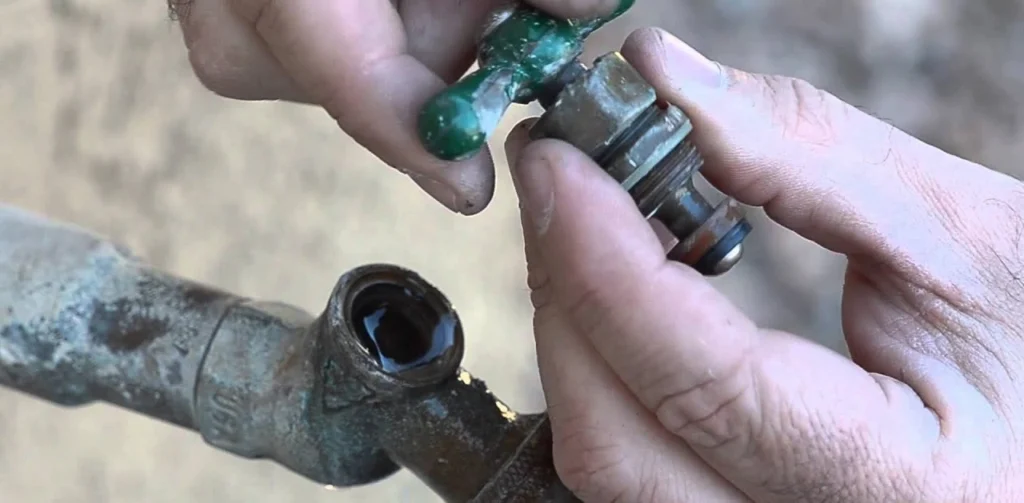
Key Differences:
- Complexity: Industrial installations require welding, flanged connections, or specialized tools (e.g., torque wrenches for ANSI-rated valves).
- Safety Compliance: Valves must meet API, ASME, or ATEX standards, requiring 第三方 testing (e.g., hydrostatic pressure tests at 1.5x rated pressure).
- Downtime Management: Scheduled replacements during planned outages to avoid production loss (costing $10k–$100k per hour in manufacturing facilities).
Tianyu’s Service Offerings:
- Turnkey installation by certified technicians, including pressure testing and compliance documentation.
- Emergency replacement services with 48-hour turnaround for critical systems.
Part 5: Common Issues and Maintenance Tips
5.1 Leaking Hose Bibbs
- Causes:
- Worn washer (replaceable for $5–$10).
- Loose packing nut (tighten with wrench).
- Corroded valve seat (requires full replacement).
- Industrial Solution: Tianyu’s valves use stellite-faced seats and PTFE packing for resistance to corrosion and high-cycle wear, reducing leakage risks by 80%.
5.2 Freezing and Bursting
- Prevention:
- In winter, disconnect hoses and drain bibbs; use insulating covers for standard bibbs.
- Install frost-free models in cold regions.
- Industrial Protocol: Tianyu recommends annual winterization checks, including thermal imaging to detect ice buildup in pipelines.
5.3 Backflow Prevention Failure
- Risk: Contamination of potable water from pesticides, chemicals, or wastewater.
- Solution: Regularly test vacuum breakers (every 6 months for industrial systems) and replace outdated models with ASSE 1019-certified units.
Part 6: Tianyu Valves: Elevating Hose Bibb Performance for Industrial Applications
As a global leader in industrial valve manufacturing, Tianyu extends its engineering excellence to hose bibbs, delivering solutions that blend residential convenience with industrial robustness:
6.1 Material Excellence
- Standard Range:
- 316 stainless steel for corrosion resistance in marine or chemical environments.
- Ductile iron for high-pressure systems (up to 2,500 PSI).
- Exotic Alloys: Hastelloy C-276 for aggressive media (e.g., sulfuric acid), Inconel 718 for high-temperature applications (up to 1,200°F).
6.2 Customization for Unique Needs
- Actuation Options: Electric or pneumatic actuators for remote control in large-scale facilities.
- Threading/Connections: Custom threads (e.g., BSP, metric) or flanged designs to fit existing infrastructure.
- Certifications: API 6D, CE, ISO 9001, and USDA compliance for food-grade applications.
6.3 Lifecycle Cost Optimization
- Durability: Tianyu’s hose bibbs are rated for 50,000 cycles, 5x longer than standard residential models.
- Case Study: A food processing plant reduced annual maintenance costs by 40% by switching to Tianyu’s frost-free, anti-siphon bibbs, eliminating freeze-related failures and contamination risks.
6.4 Global Support and Compliance
- Regional Expertise: Pre-certified for North American (UPC), European (WRAS), and Asian (JIS) markets, reducing regulatory hurdles.
- Technical Documentation: Free provision of Material Test Reports (MTRs), PMI data, and maintenance logs for audit readiness.
Part 7: Hose Bibb Code Compliance and Industry Standards
7.1 Residential Codes
- U.S. Requirements:
- IRC (International Residential Code) mandates at least one hose bibb per dwelling, with anti-siphon protection.
- IPC (International Plumbing Code) requires frost-free bibbs in climates where the ground freezes.
- Europe: EN 1074 standards for outdoor faucets, including pressure and leakage testing.
7.2 Industrial Standards
- API 607: Fire-safe design for hydrocarbon environments.
- ASME B16.34: Valve dimensions and pressure ratings for industrial applications.
- NSF/ANSI 61: Lead-free materials for potable water systems.
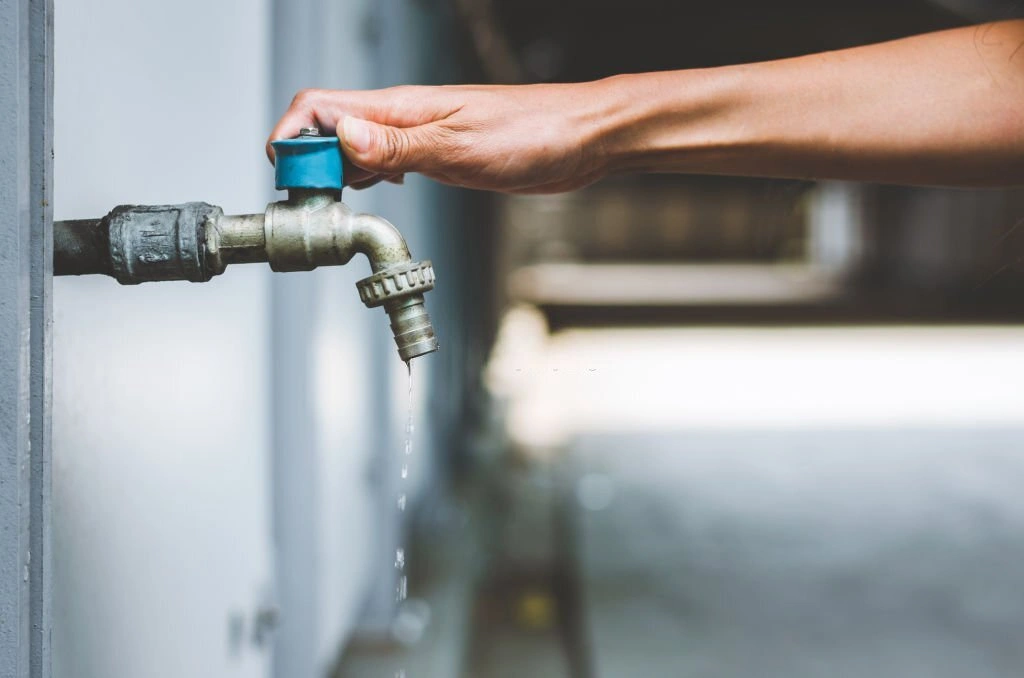
Tianyu’s Compliance Promise: All industrial hose bibbs undergo rigorous testing to meet or exceed regional and international standards, ensuring seamless integration into global projects.
Part 8: Choosing the Right Hose Bibb: A Buyer’s Guide
8.1 Residential Selection Criteria
- Climate: Frost-free models for zones with subfreezing temperatures.
- Usage Frequency: Heavy-duty brass for daily use; plastic for occasional use.
- Code Compliance: Ensure anti-siphon and lead-free certifications.
8.2 Industrial Selection Criteria
- Media Type: Corrosive fluids require exotic alloys; potable water needs NSF-certified materials.
- Pressure/Temperature: Match valve ratings to system requirements (e.g., 1,500 PSI for hydraulic systems).
- Actuation Needs: Automated valves for IoT-integrated facilities; manual for simple setups.
8.3 Cost vs. Quality
- Residential: A $20 plastic bibb may fail after 2 years; a $50 brass model lasts 10+ years.
- Industrial: Investing in $500–$2,000 stainless steel bibbs reduces downtime and replacement costs over a 20-year lifecycle.
Conclusion: The Tianyu Advantage in Hose Bibb Engineering
Hose bibbs are far more than simple outdoor faucets—they are critical components in water management systems, requiring precision engineering to balance functionality, durability, and safety. Whether for a home garden or a large-scale industrial plant, Tianyu Valves delivers hose bib solutions that:
- Outperform Standards: With materials and designs tested to extreme conditions.
- Save Costs Long-Term: Through extended lifespans and minimal maintenance.
- Ensure Compliance: With global certifications with no compromise.
Contact Tianyu Today to discuss your hose bibb needs, from residential frost-free models to custom industrial solutions. Our team of experts will help you select the right product, ensuring optimal performance and peace of mind.
Engineered for Every Environment. Built to Last.
Tianyu Valves—Where Innovation Meets Reliability.
Tianyu Valves—Where Innovation Meets Reliability.


